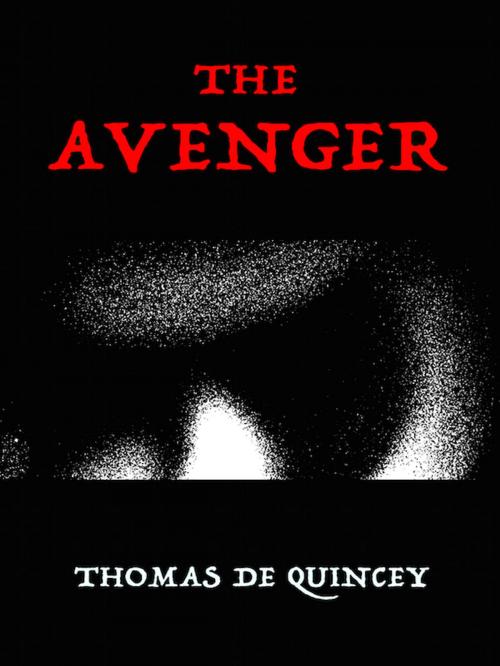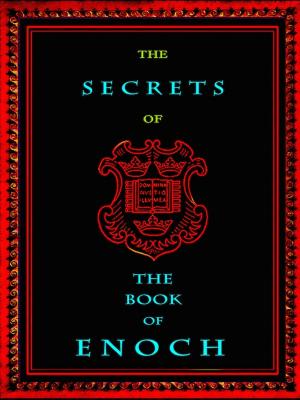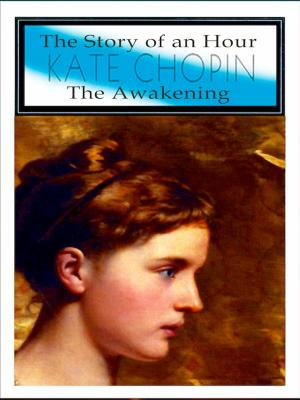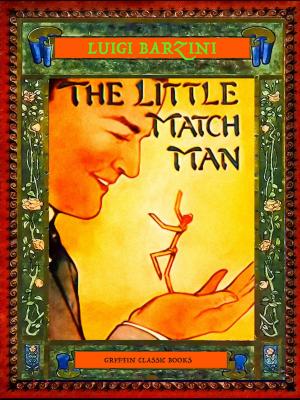| Author: | Thomas de Quincey | ISBN: | 1230001442878 |
| Publisher: | Editions Artisan Devereaux LLC | Publication: | November 26, 2016 |
| Imprint: | Language: | English |
| Author: | Thomas de Quincey |
| ISBN: | 1230001442878 |
| Publisher: | Editions Artisan Devereaux LLC |
| Publication: | November 26, 2016 |
| Imprint: | |
| Language: | English |
In his 1827 essay "On Murder Considered as One of the Fine Arts," Thomas De Quincey proposed that murder should be examined from an aesthetic, rather than ethical or sociological perspective.
In one of his most brilliant essays he applauded murder as one of the finer “arts” of life: e.g. the biblical Cain’s act was, like opium, a royal road to the human unconscious.
He looked at the murderer's "style" and judged killings according to the precepts of taste, thereby generating a macabre dialogue about genre and literary affect in the 19th century periodical press.
Published in 1838, Thomas De Quincey’s The Avenger is a Gothic story of bloodshed, cruelty and religious authoritarianism.
It focuses on the character of John Williams, a London serial killer who brutally massacred seven people in the early 1800s in London's East End.
The Avenger represents De Quincey’s aesthetic examination of the crimes and the criminal behavior of his age.
Instead of focusing on the crime’s horror and hideous nature, his oddly cool, technical approach leads him to look at it as a work of art and so highlight its “positive” aspects.
Ranging from gruesomely vivid reportage to penetrating literary and aesthetic criticism, The Avenger has had a remarkable impact on crime, terror, and detective fiction.
De Quincey went beyond Wordsworth, and even Coleridge, into dangerous places.
He was fascinated by the demons released on the darkest fringes of mankind.
Literature’s vast archives of crime fiction, from Edgar Allan Poe to Hannibal Lecter, owe a primal debt to Thomas De Quincey.
THOMAS De QUINCEY (1785 –1859) was an English essayist, best known for his Confessions of an Opium-Eater. His account of his opiated experiences has left an indelible print on the literature of addiction, and modern commentators continue to grapple with his legacy.
“On Murder” had a remarkable impact on the rise of nineteenth-century decadence, and anyone still smarting from the pinpricks of Oscar Wilde or James Whistler “will find most of what they said—said better in Murder as one of the Fine Arts.”
- G. K. Chesterton
In his 1827 essay "On Murder Considered as One of the Fine Arts," Thomas De Quincey proposed that murder should be examined from an aesthetic, rather than ethical or sociological perspective.
In one of his most brilliant essays he applauded murder as one of the finer “arts” of life: e.g. the biblical Cain’s act was, like opium, a royal road to the human unconscious.
He looked at the murderer's "style" and judged killings according to the precepts of taste, thereby generating a macabre dialogue about genre and literary affect in the 19th century periodical press.
Published in 1838, Thomas De Quincey’s The Avenger is a Gothic story of bloodshed, cruelty and religious authoritarianism.
It focuses on the character of John Williams, a London serial killer who brutally massacred seven people in the early 1800s in London's East End.
The Avenger represents De Quincey’s aesthetic examination of the crimes and the criminal behavior of his age.
Instead of focusing on the crime’s horror and hideous nature, his oddly cool, technical approach leads him to look at it as a work of art and so highlight its “positive” aspects.
Ranging from gruesomely vivid reportage to penetrating literary and aesthetic criticism, The Avenger has had a remarkable impact on crime, terror, and detective fiction.
De Quincey went beyond Wordsworth, and even Coleridge, into dangerous places.
He was fascinated by the demons released on the darkest fringes of mankind.
Literature’s vast archives of crime fiction, from Edgar Allan Poe to Hannibal Lecter, owe a primal debt to Thomas De Quincey.
THOMAS De QUINCEY (1785 –1859) was an English essayist, best known for his Confessions of an Opium-Eater. His account of his opiated experiences has left an indelible print on the literature of addiction, and modern commentators continue to grapple with his legacy.
“On Murder” had a remarkable impact on the rise of nineteenth-century decadence, and anyone still smarting from the pinpricks of Oscar Wilde or James Whistler “will find most of what they said—said better in Murder as one of the Fine Arts.”
- G. K. Chesterton















